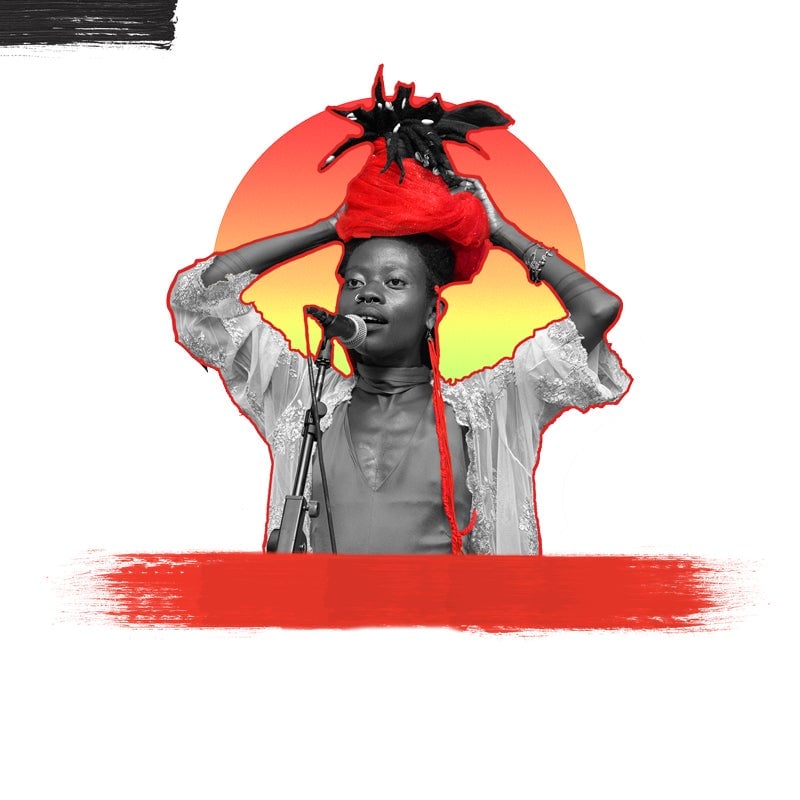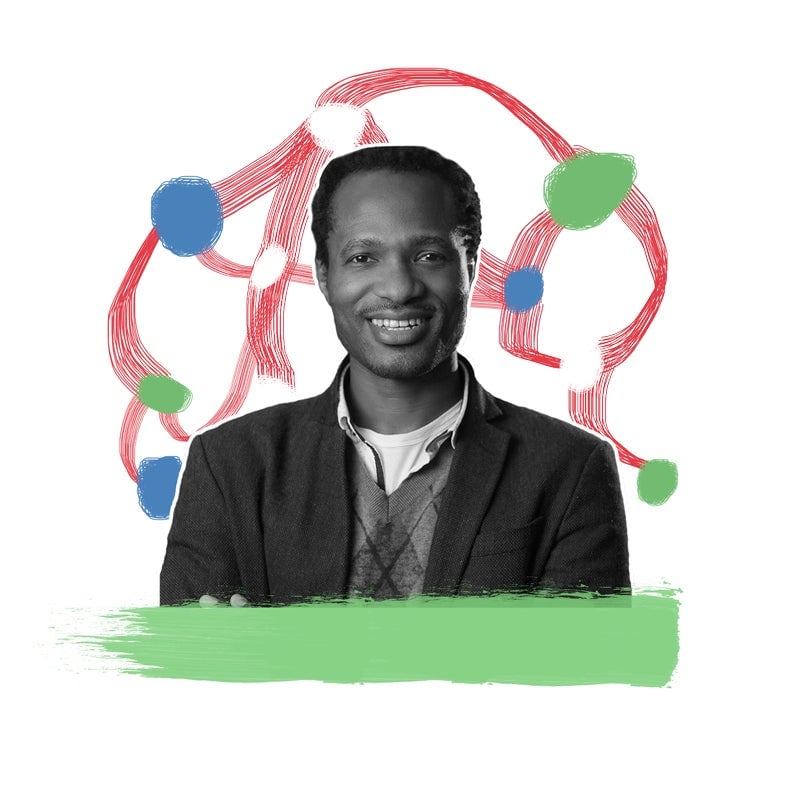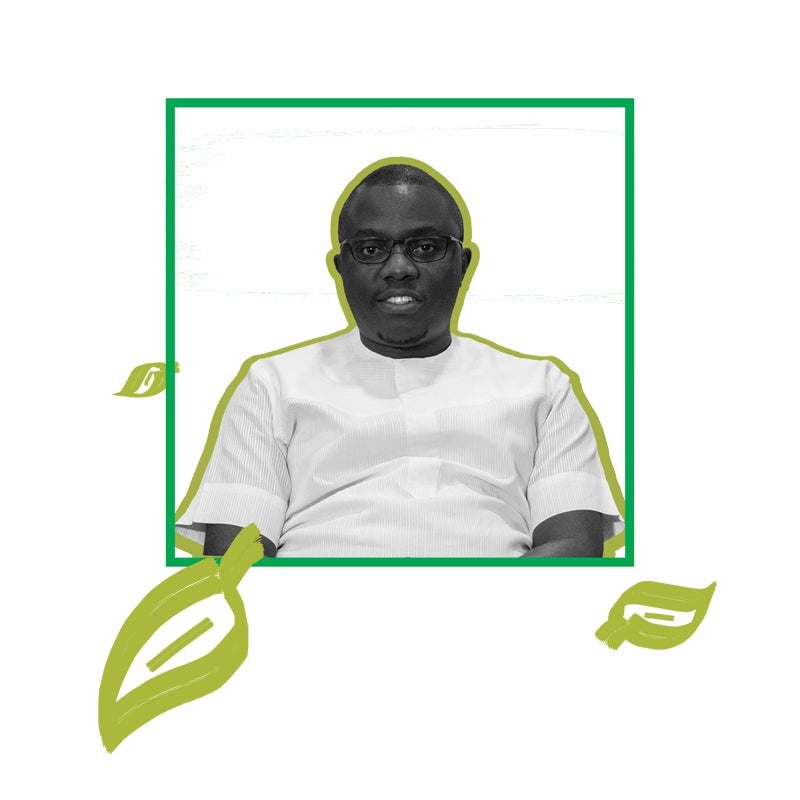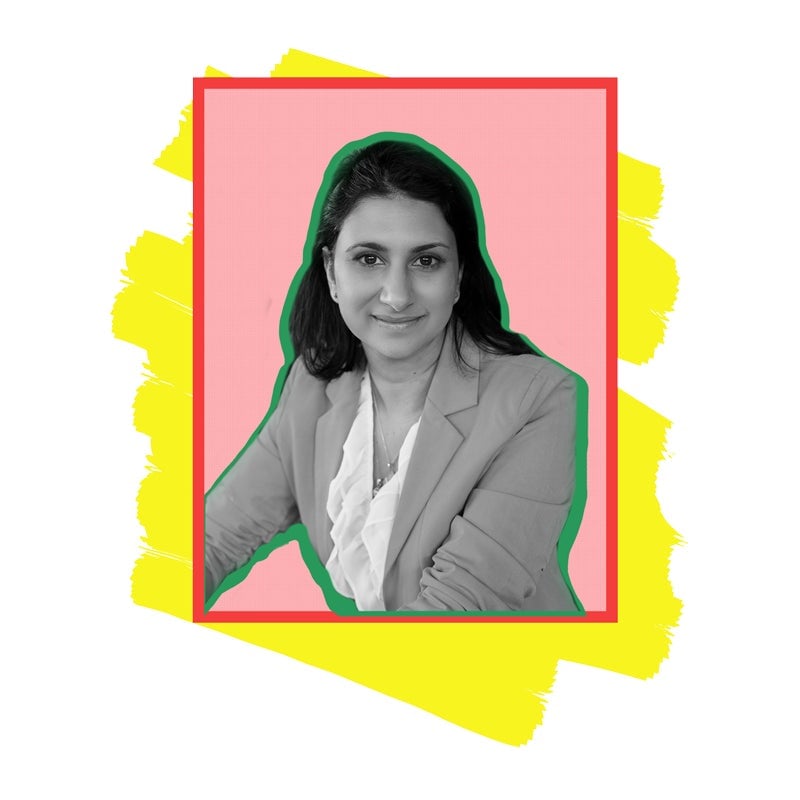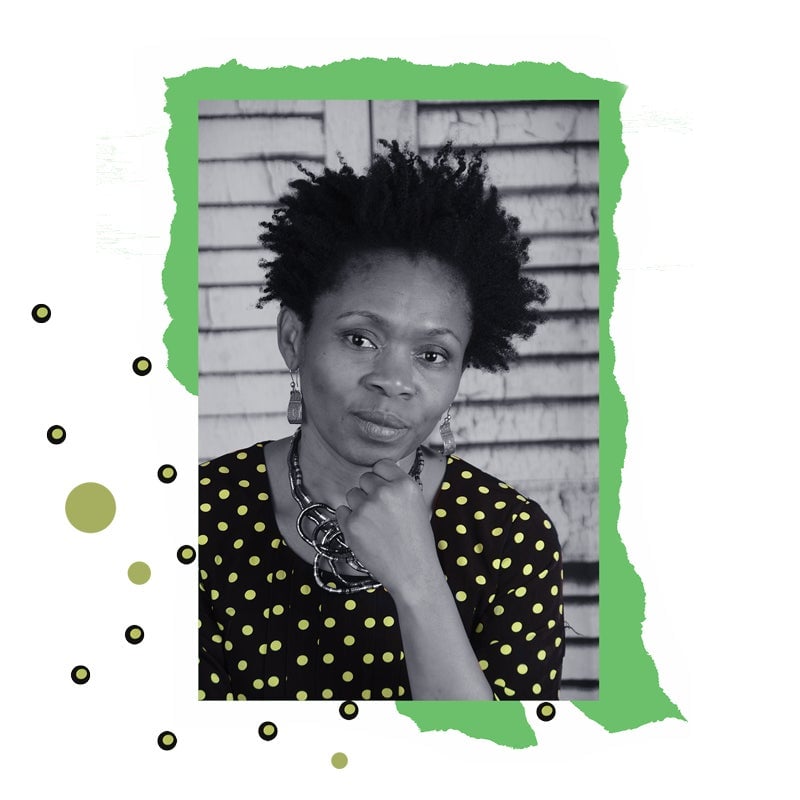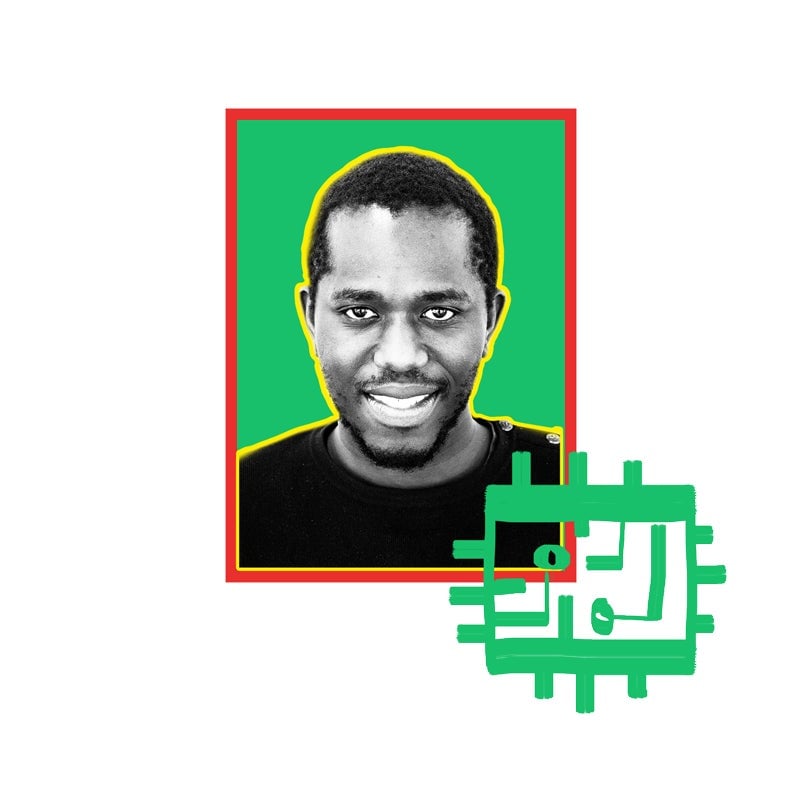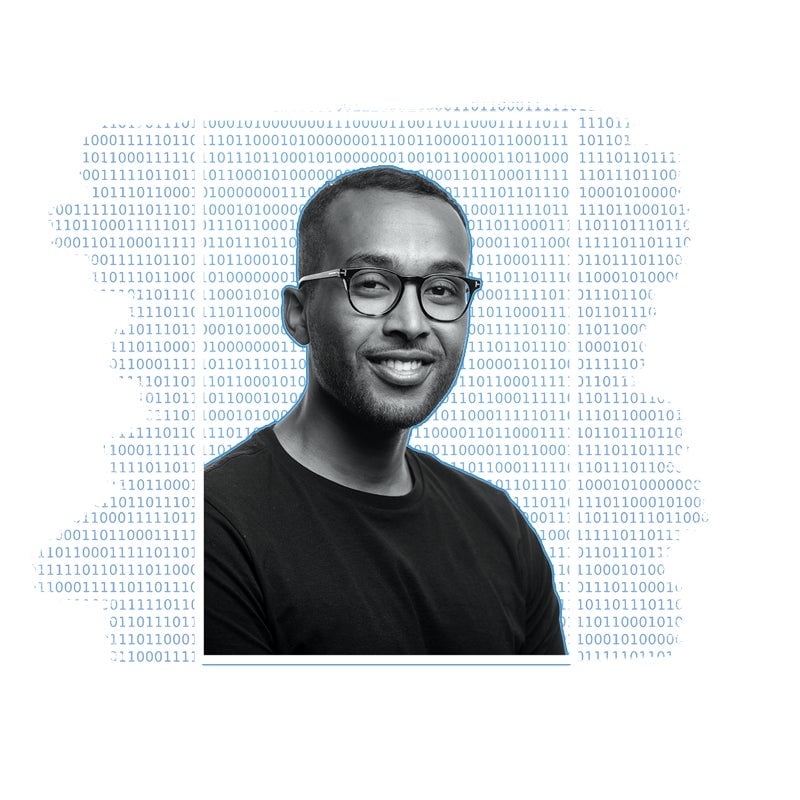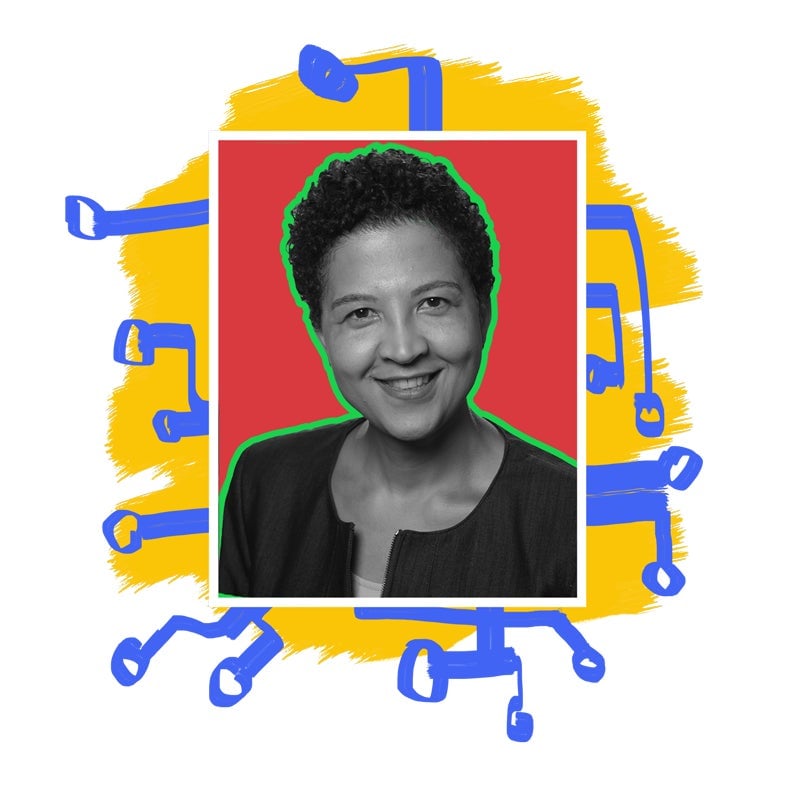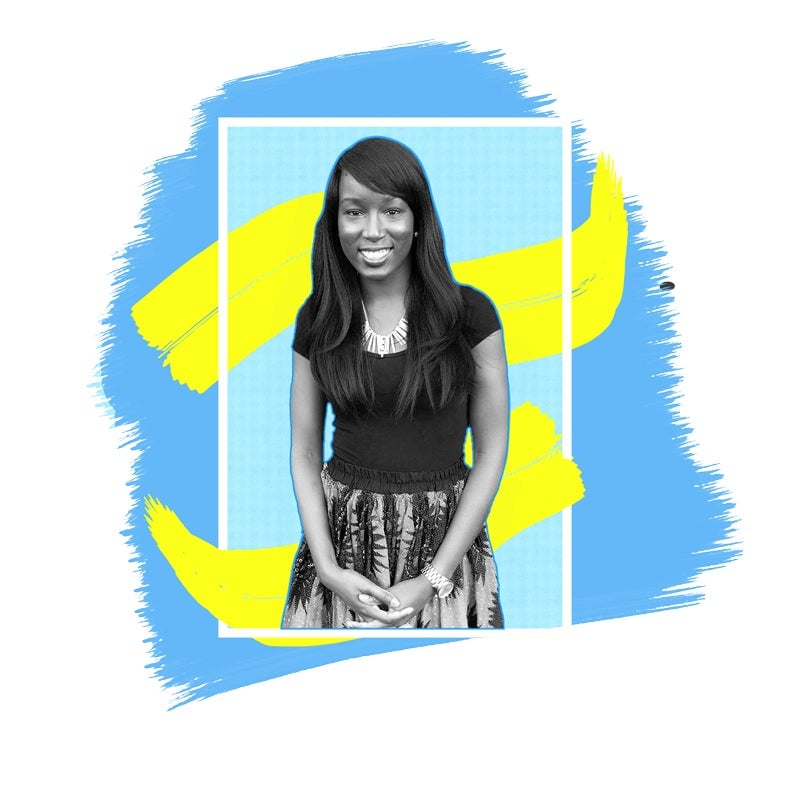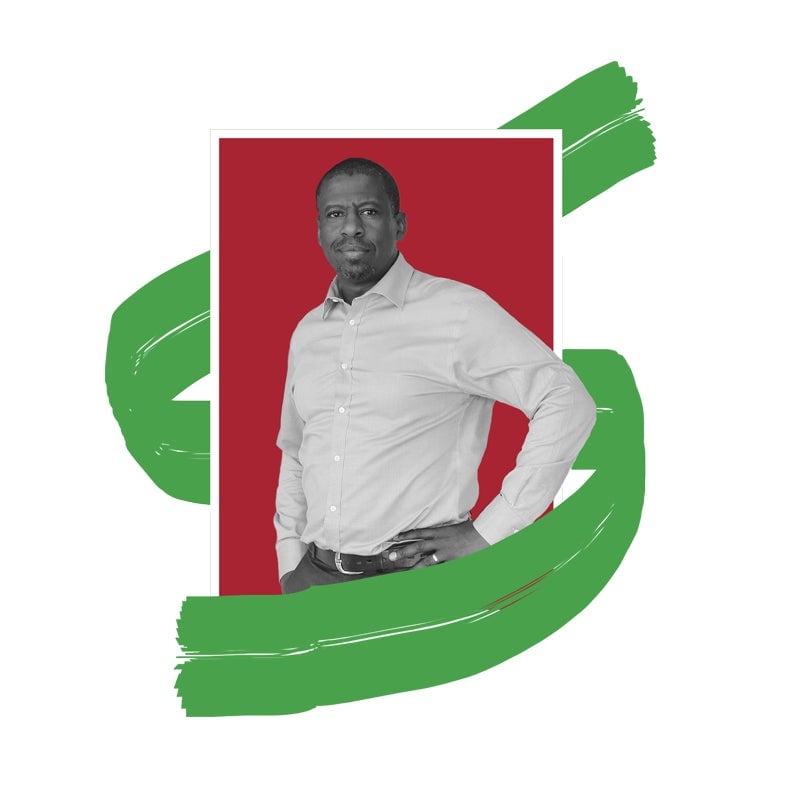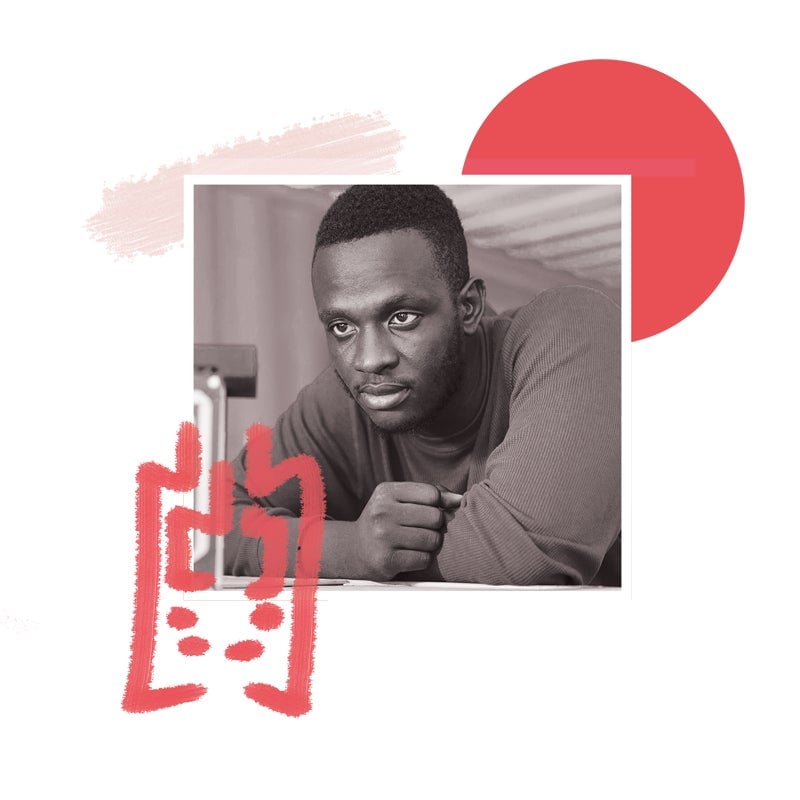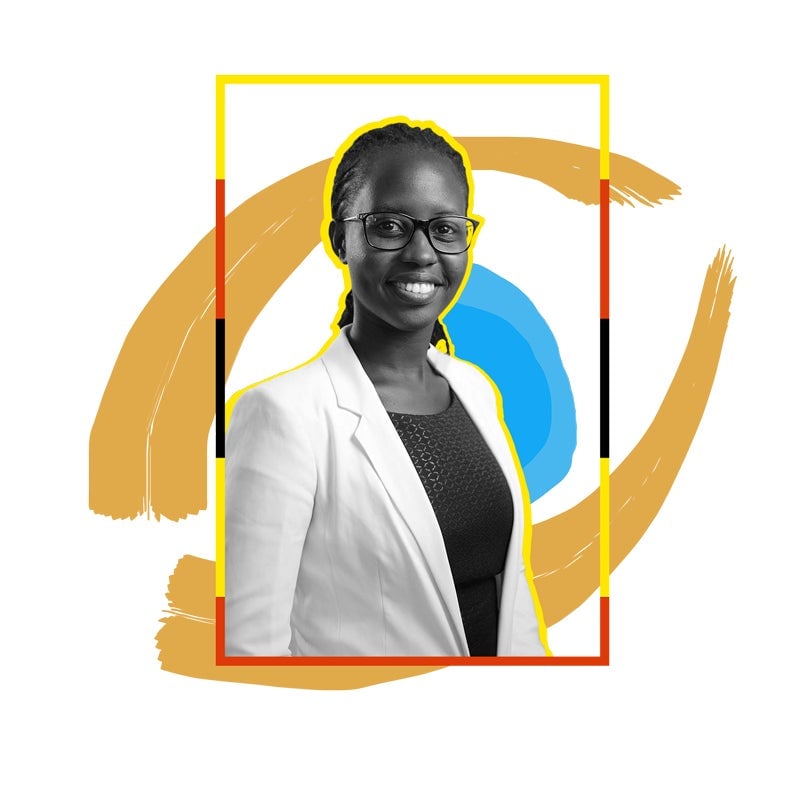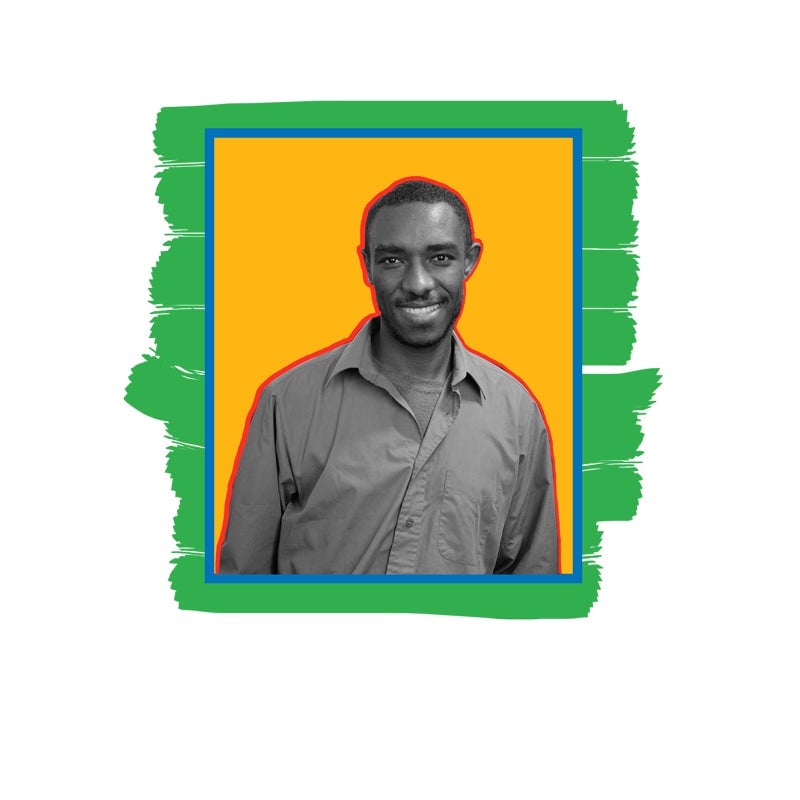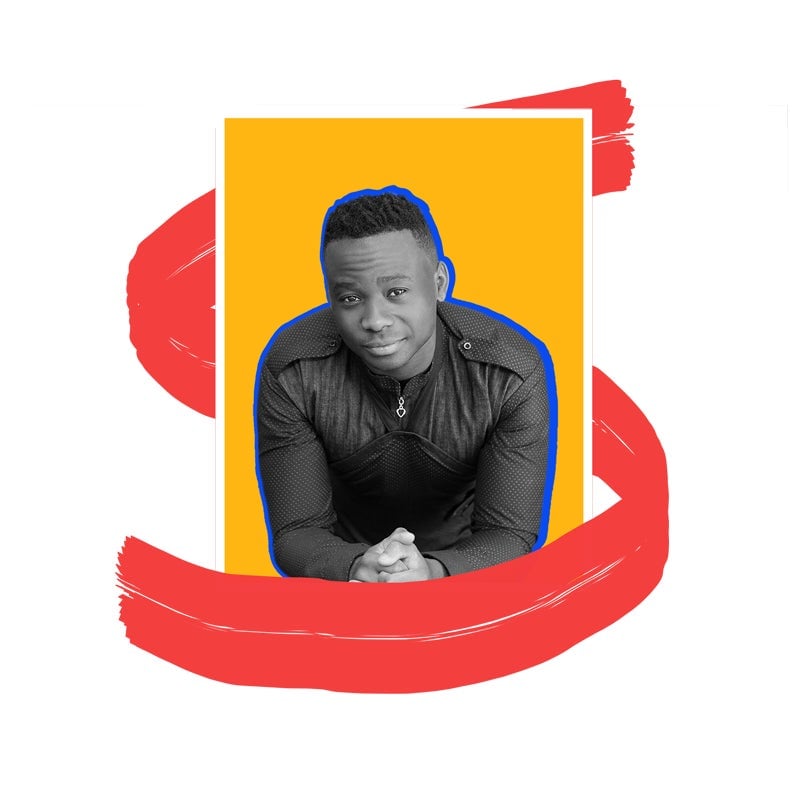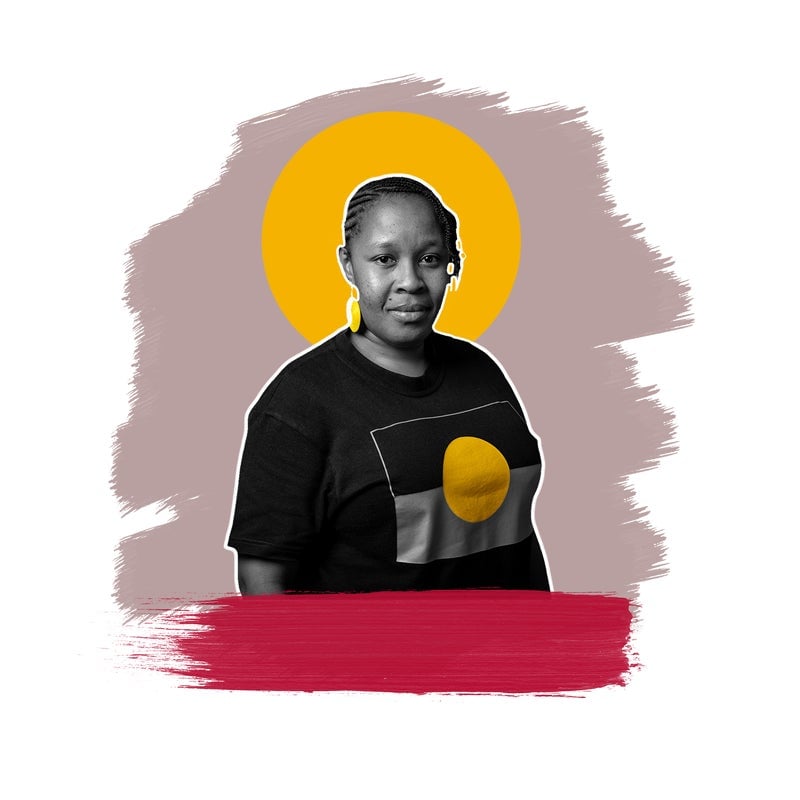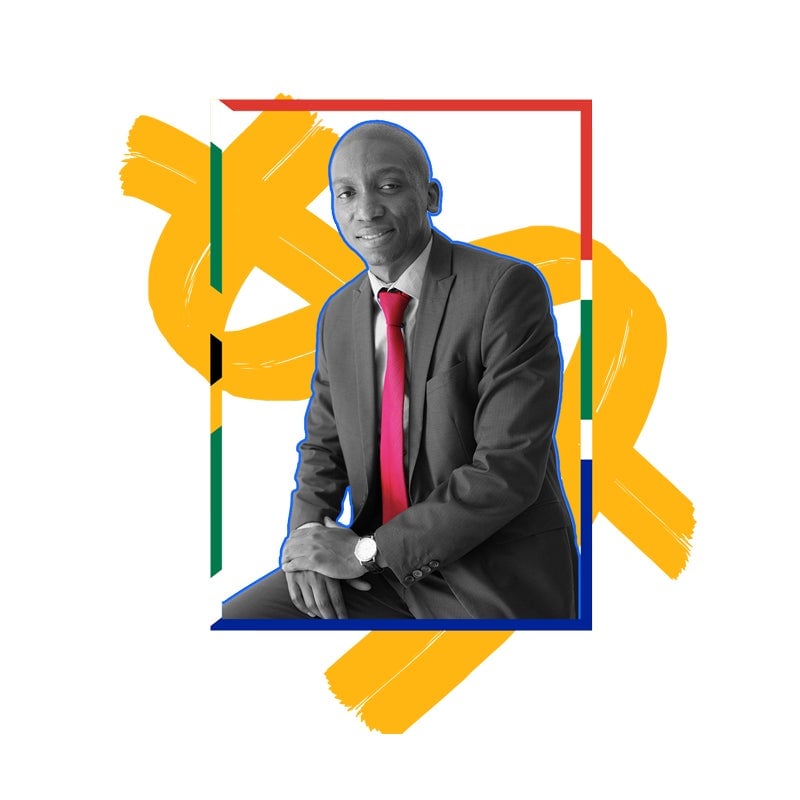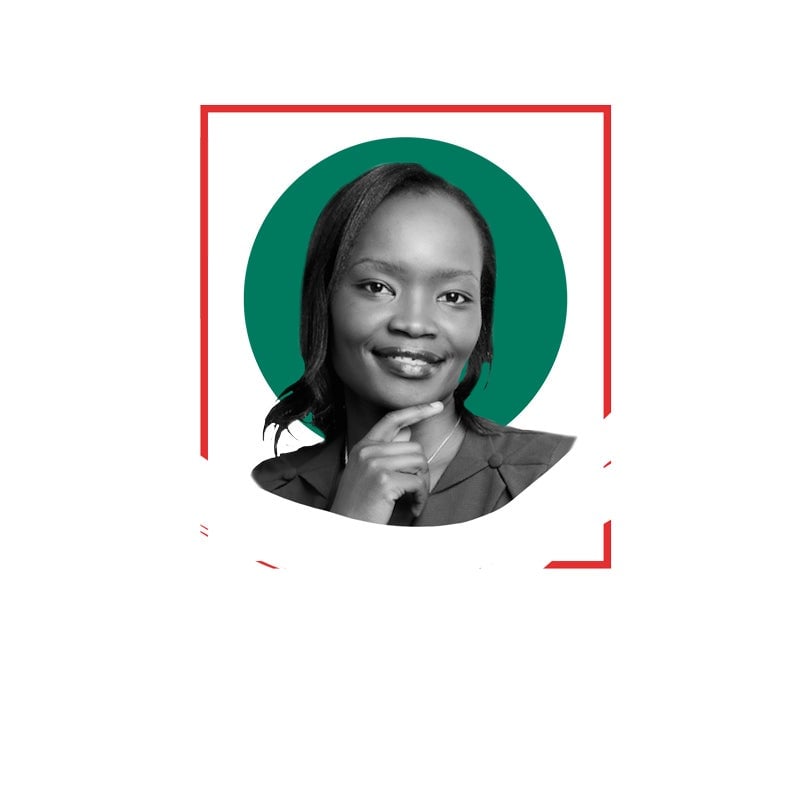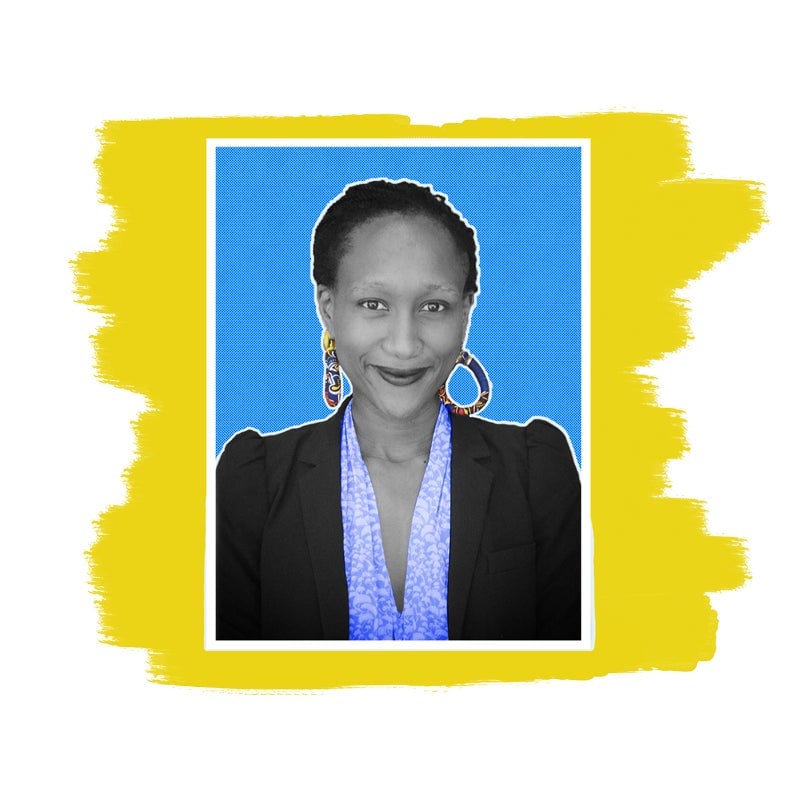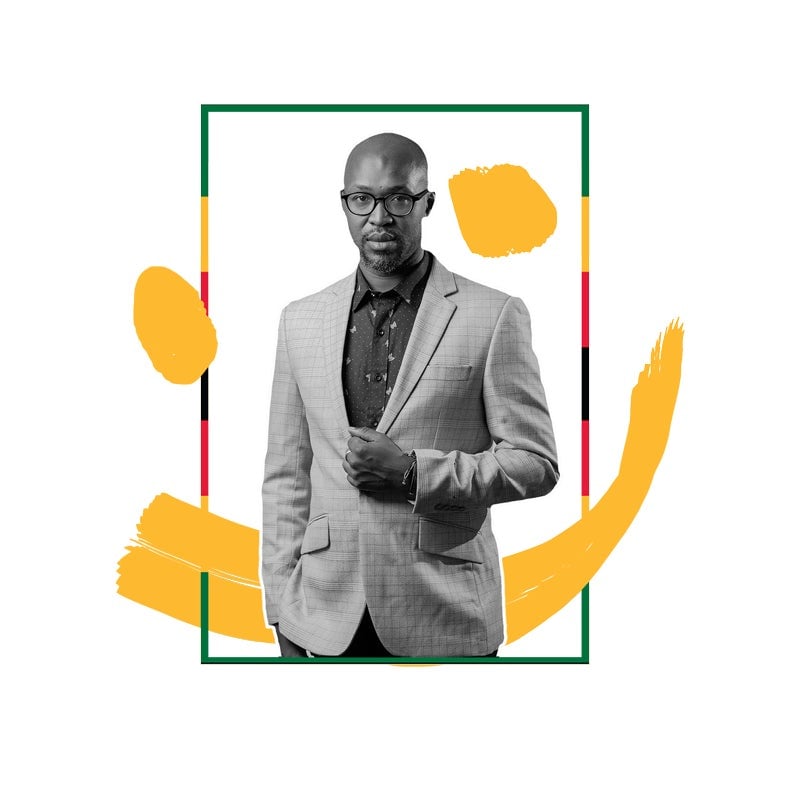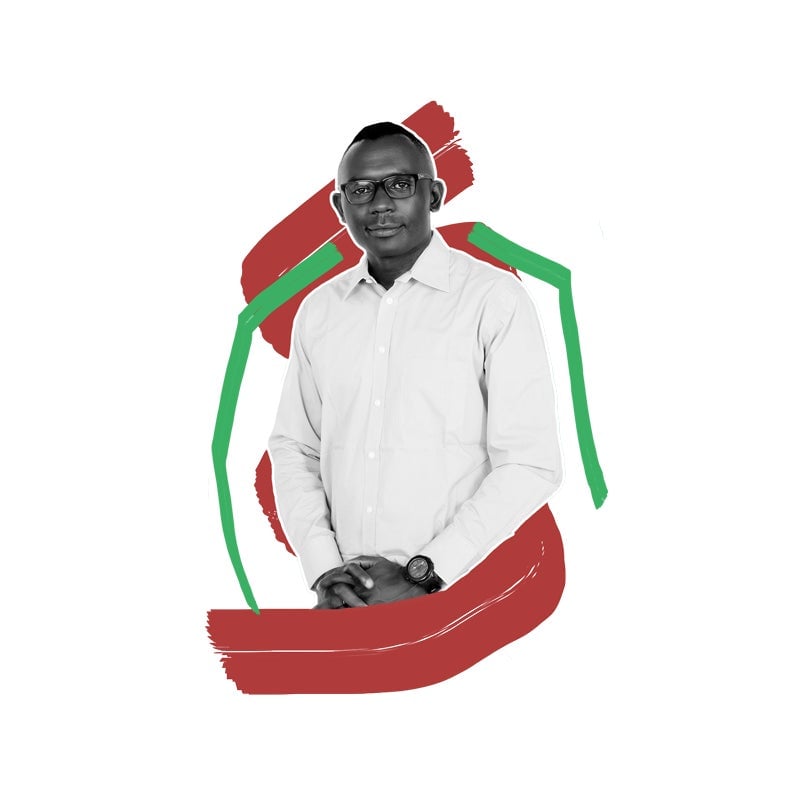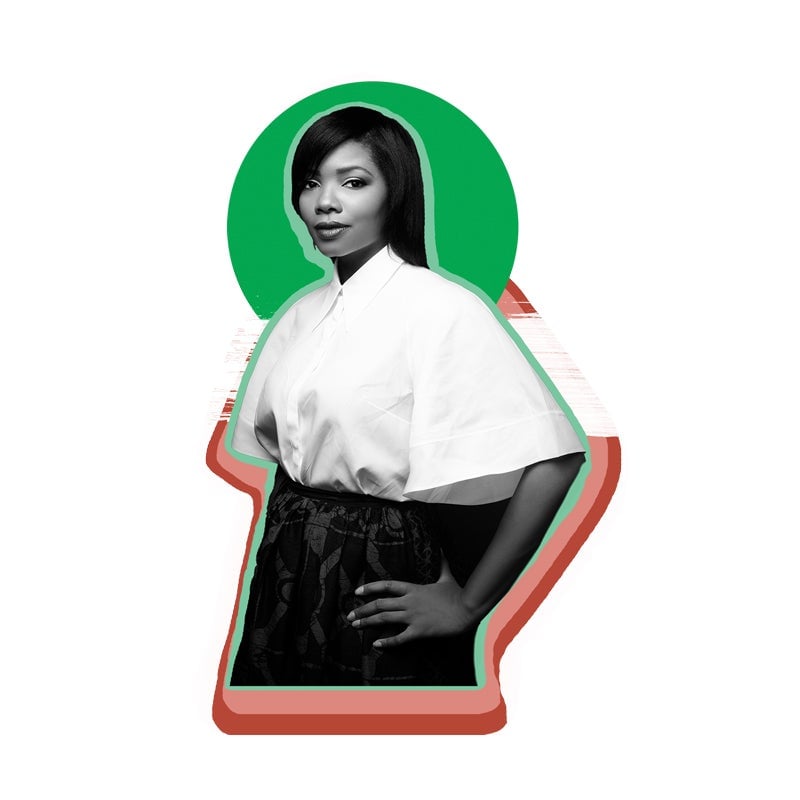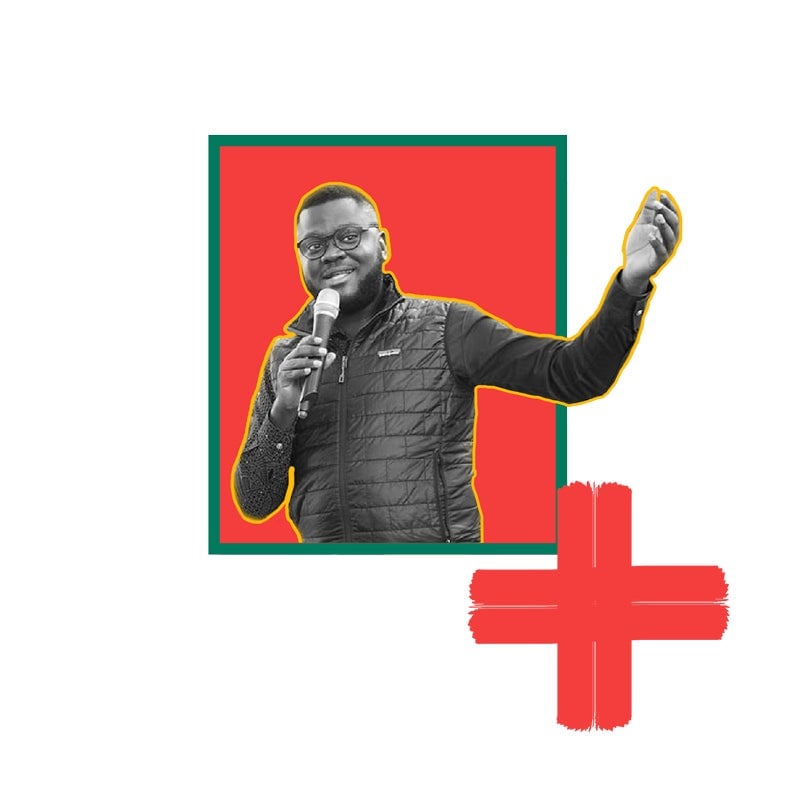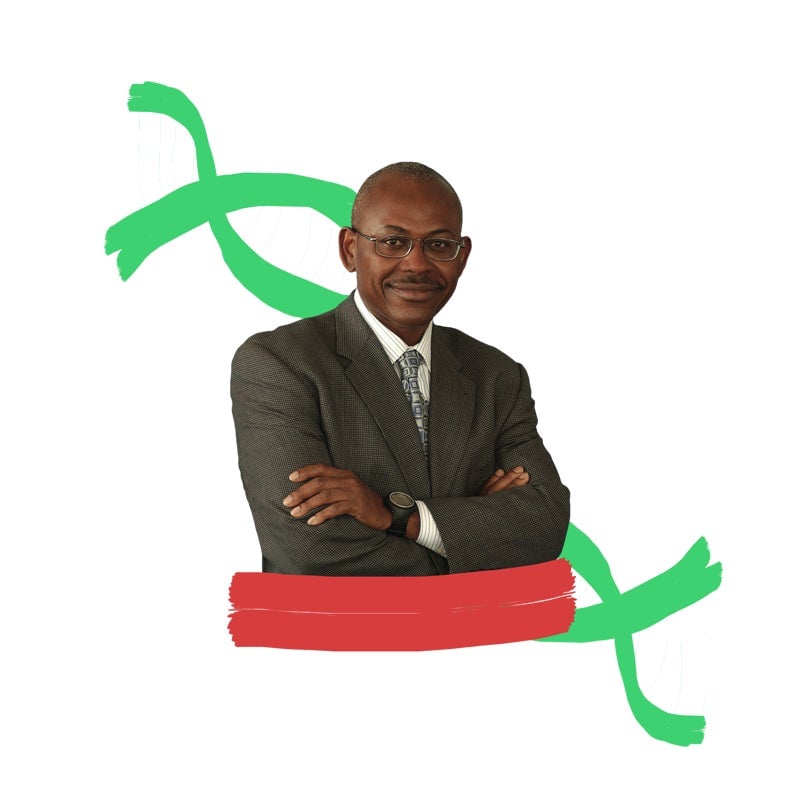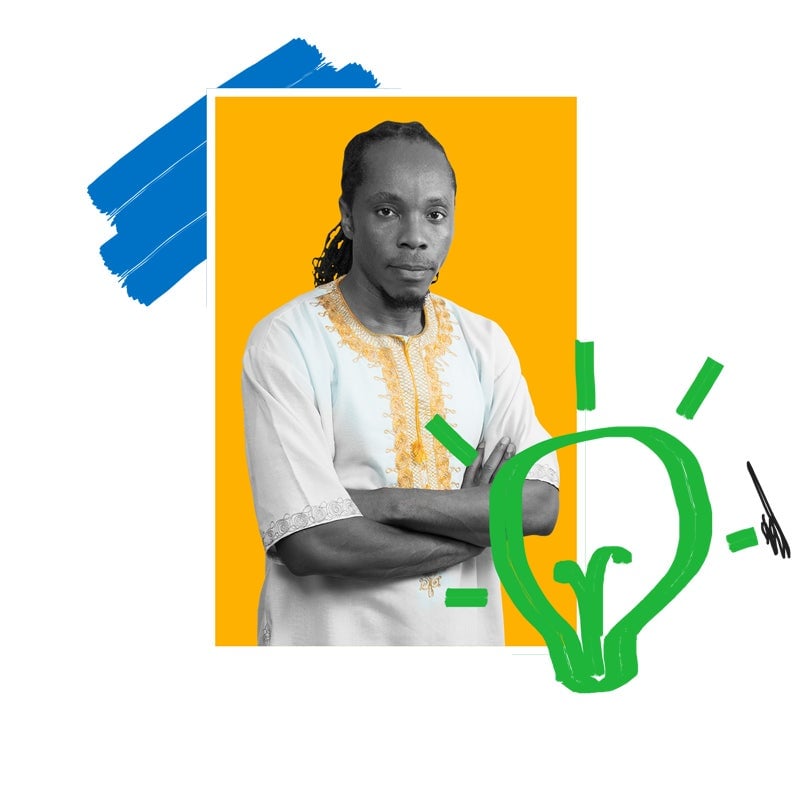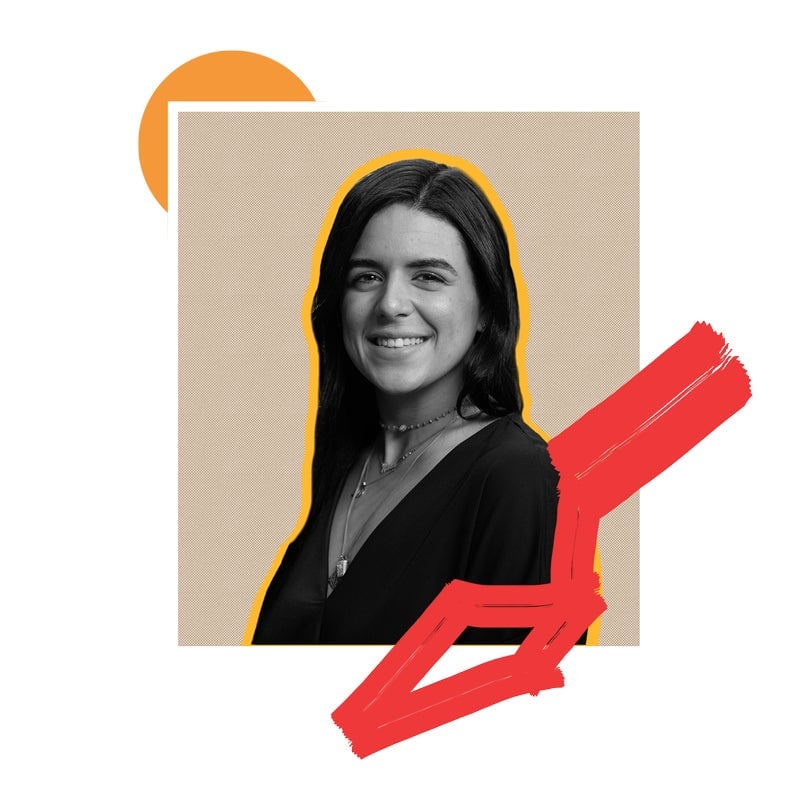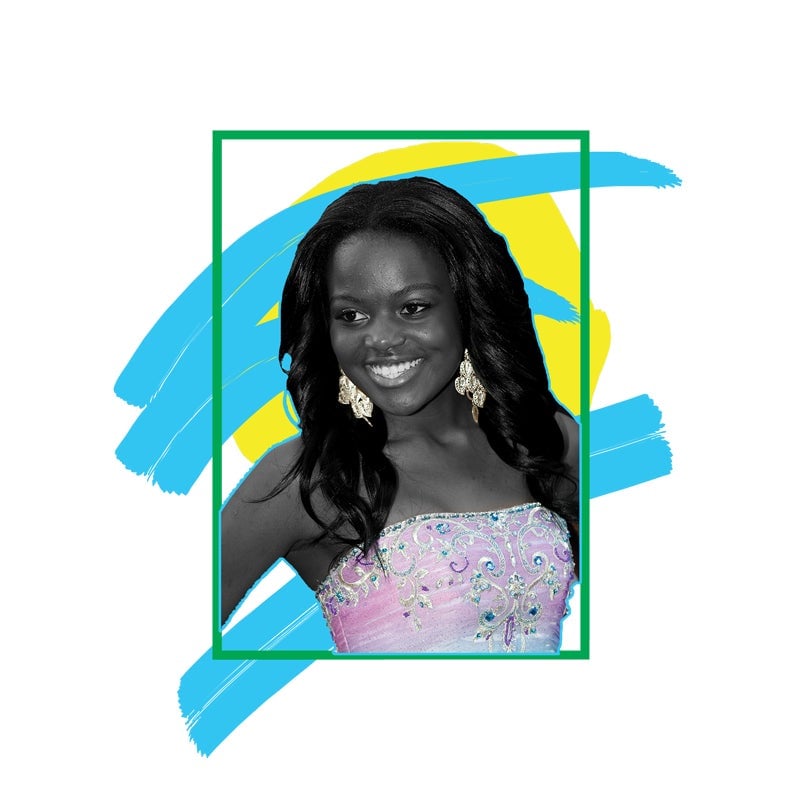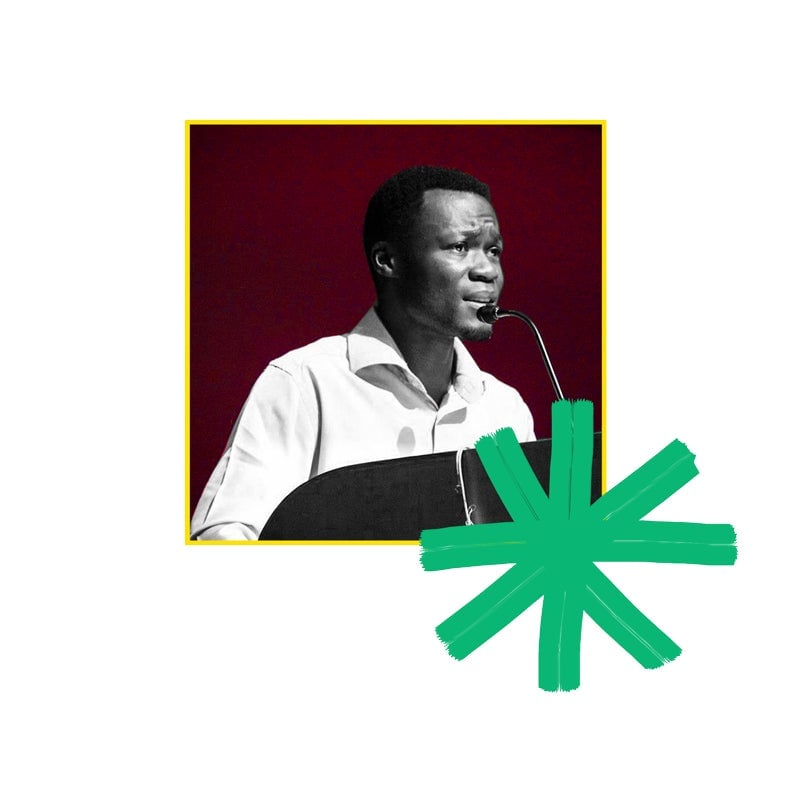Quartz Africa Innovators 2018: A list of 30 pioneers
This is the fourth edition of the Quartz Africa Innovators, our annual series identifying some of the most ambitious and imaginative minds on the continent. The 30 movers and thinkers on this list range across fields from the arts and science to technology and entrepreneurship and beyond.
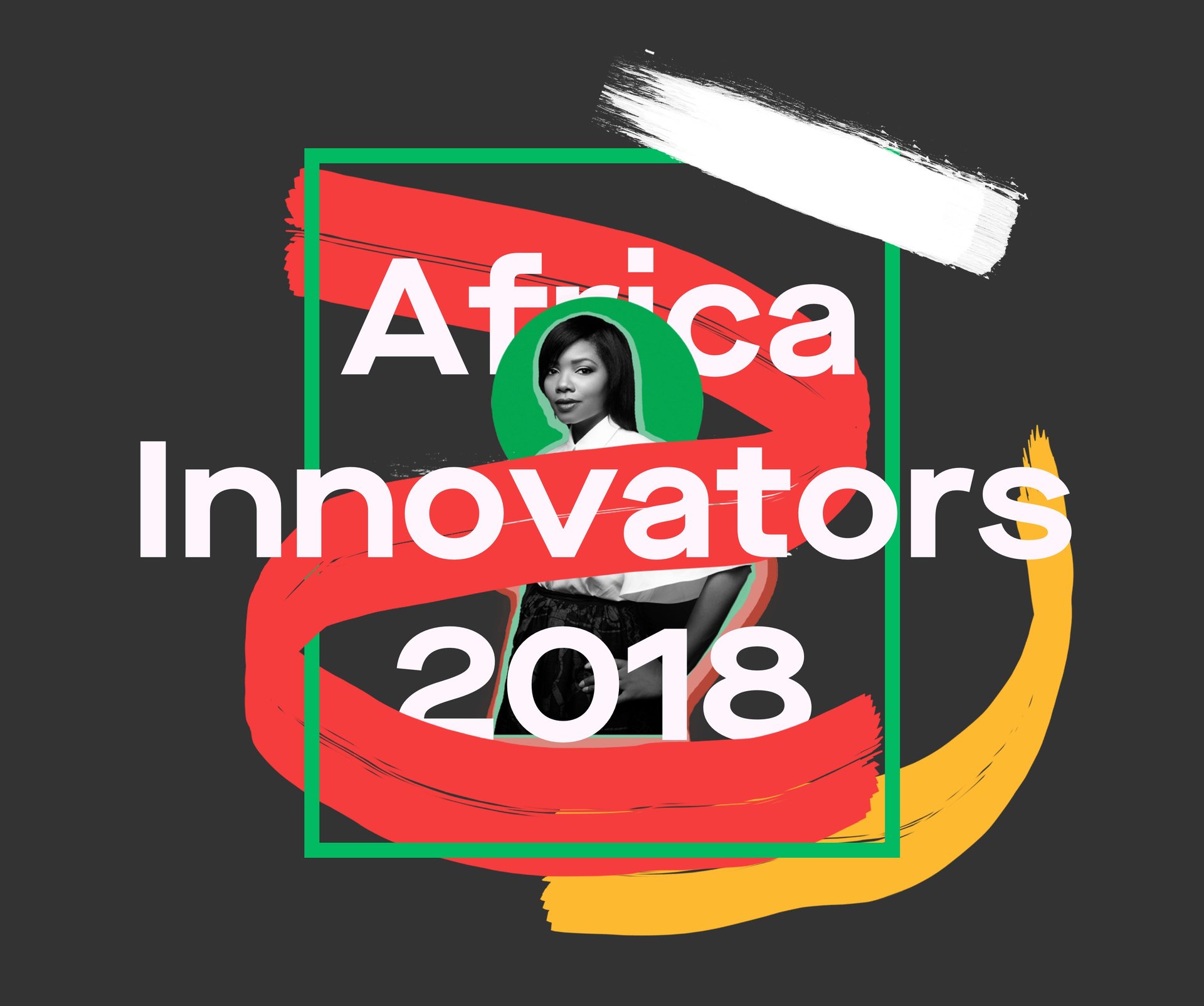

This is the fourth edition of the Quartz Africa Innovators, our annual series identifying some of the most ambitious and imaginative minds on the continent. The 30 movers and thinkers on this list range across fields from the arts and science to technology and entrepreneurship and beyond.
They all have one thing in common: a burning drive to make an impact on their communities, countries—and ultimately the continent. It is the same impressive trait found with each of our innovators from 2015, 2016 and 2017.
We’ve never believed innovation is simply about technology and gadgets. It’s about innovative thinking in all areas—challenging norms and going past safe expectations. The kind of innovation that drives making strides to end a killer disease, change agriculture with technology or bend and blend artistic genres.
There’s a metaphorical arms race featuring Africa’s fast-growing population versus unemployment, rising non-communicable diseases and the impact of climate change, among other challenges. These issues need clear thinking, strong leaders and the kind of innovation you find when you go through this year’s list. These women and men show that talk of African solutions for African problems isn’t just a catchy meme. It’s very real and very important.
Please join us in congratulating everyone here in recognition of their outstanding vision, insight and work.
—Yinka Adegoke, Quartz Africa editor
Table of Contents
Innovators
Jojo Abot ● Oshiorenoya Agabi ● Onyeka Akumah ● Nabila Alibhai ● Bibi Bakare-Yusuf ● Moustapha Cisse ● Abdigani Diriye ● Tania Douglas ● YaAdam Fye ● Kamau Gachigi ● Brian Gitta ● Brenda Katwesigye ● Zelalem Kibret ● Dieuveil Malonga ● Koketso Moeti ● Tshepo Moloi ● Hilda Moraa ● Nthabiseng Mosia ● Carl Joshua Ncube ● Fredros Okumu ● Newton Owino ● Tokini Peterside ● Gregory Rockson ● Charles Rotimi ● Moinina David Sengeh ● Nora Shawki ● Mamadou Gorou Sidibe ● Sherrie Silver ● Conrad Tankou ● Ghada Wali
Essays & ideas
● How to develop an innovation culture in the African corporate environment, by Andrew Alli
● Innovators are Africa’s only real hope for prosperity, by Efosa Ojomo
● Tech savvy innovators are trying to save Africa’s historic languages and boost literacy, by Lynsey Chutel
● Africa’s ancient practices are being digitized for the future, by Abdi Latif Dahir and Lynsey Chutel
● Africa’s fintech startups are innovating out of need and global investors are backing them, by Yomi Kazeem
Ghanaian Jojo Abot has fused folklore, history, and afrofuturism to create a multidisciplinary platform rooted in Africa, but with a global outlook.
The musician, photographer, and performance artist’s current project, FYFYA WOTO, is a multimedia exploration of identity. In 2015, the project produced a four-track conceptual album that tells the forbidden love story of a Ghanaian woman and a white man during the time of slavery. Unafraid to bend genres, Abot plays with afrobeats, jazz, reggae and her own sound, which she’s dubbed “afro-hypno-soul.”
Abot’s photographic series for the project is an evolving catalog capturing portraits of womanhood around the continent, dignified and unwavering in traditional gear, but also draped in beads, flowers and berries and in afrofuturist splendor, culminating in a performance art installation titled “Power to the God Within.”
Abot is also the creator of the Afri-Na-Ladi residency in Nairobi, which supports “innovative underground artists.”
Oshi Agabi, a theoretical physicist, focuses on the intersection of technology and neurobiology. Agabi believes that the synthesis of the two could provide solutions for everyday challenges and open up a multitude of opportunities.
While completing his doctorate in computational neuroscience and bioengineering from Imperial College in London, Agabi also has experience in robotics, optics, computational neuroscience, and bioengineering. In 2015, he established Koniku, a technology company that builds machines which mimic the brain using principles of synthetic neurobiology.
Its biggest invention so far has been Koniku Kore, a modem-sized device that uses mice neurons to sniff out explosives and detect diseased cells. Agabi says harnessing the combined power of neurobiology and technology could forestall global problems like cancer or terrorism. “Biology has the most extensive open source hardware and software,” Agabi has said.
Investing in agriculture has been touted as one way to diversify Nigeria’s oil-dependent economy. But apathy, especially from a middle-class disinterested in farming, has hampered that possibility.
That’s gradually changing thanks to Onyeka Akumah’s agribusiness startup, FarmCrowdy. The startup’s “crowd-farming” model allows Nigerians to sponsor smallholder farmers—who make up 80% of the country’s farmer population—for a share of profits upon harvest. Farmcrowdy serves as a crucial conduit between middle-class Nigerians with capital and smallholder farmers who want to expand production.
Farmcrowdy is the first African startup to be accepted into Techstars Atlanta’s accelerator program and has been backed with $1 million from investors so far. The company may provide a lasting fix for boosting Nigeria’s agricultural output, but Akumah prefers a simpler view. Farmcrowdy’s proposition, he says, is simply to provide “guidance” to Nigerians who are interested in agriculture, but unsure how to get involved.
How do we transform urban centers into pluralistic, safe, healthy public spaces, and responsibility for our shared spaces? In an increasingly divided world, can physical spaces be used to unite different communities? Nabila Alibhai’s work revolves around questions like these.
The founder of Kenya-based cultural lab inCOMMONS, Alibhai has worked on projects in Tanzania, Rwanda, Afghanistan, Pakistan, and the US. She’s conducted civic leadership exercises with students, mapped neighborhoods to make them cleaner and greener, and promoted eco-tourism. In 2016, the inCOMMONS project Color in Faith saw Christian and Muslim volunteers in Kenya paint houses of worship an “optimistic yellow” to celebrate unity in diversity.
Projects like these, Alibhai says, show people they have more in common than they think. “We are using co-created art to bring hope, imagine new realities, facilitate communication and dialogue, and provide connection and catharsis,” she says.
It’s not enough for Bibi Bakare that Africans tell their own stories: they should also own the means of their distribution. Bakare founded Cassava Republic in Nigeria’s capital city, Abuja in 2006 to meet this goal.
Since launching, Cassava Republic has discovered now internationally known writers including Teju Cole, author of Every Day is for the Thief and Elnathan John, author of Born on a Tuesday. The publishing house has also expanded to Europe and the US. In March, Cassava Republic won the Independent Publishers Guild Alison Morrison Diversity Award.
Cassava Republic is part of a broader goal to re-imagine Nigeria. “Nigerian literature, like any other literature, adds to the global bookshelf with stories that are rich in content and in form. Sometimes, Nigerian literature may get there first,” Bakare-Yusuf said.
Moustapha Cissé believes in order for AI to serve all humans, not only does knowledge need to be accessible to everyone, but “the scientific community must represent the diversity of the challenges our world faces today.”
This year, Cissé co-founded the African Masters in Machine Intelligence (AMMI) at the African Institute for Mathematical Sciences in Kigali, Rwanda. AMMI is a one-year specialized degree in machine learning and artificial intelligence. Students are fully sponsored by AMMI’s partners Facebook and Google.
Cissé was born and raised in Senegal. After completing his PhD at Universitè Pierre et Marie Curie in France, he worked for Facebook’s Artificial Intelligence Research arm in Paris. He heads Google’s AI Center in Ghana where, he focuses on “how to design reliable, intelligent machines whose behaviors are aligned with the best values of our societies, and which can help us solve the toughest challenges we face today.”
AMMI’s courses will continue to be taught in the future “by some of the best scientists in the world,” Cisse hopes. “The only difference will be that most of them will be AMMI alumni.”
Abdigani Diriye established Somalia’s first tech incubator and startup accelerator, Innovate Ventures, in 2012. The 34-year-old is one of a number of Somalis who are trickling back after a long period of civil war to help rebuild the Horn of Africa nation.
Diriye has given Somalia’s nascent tech space a significant boost by training and investing in young entrepreneurs and innovators. With a PhD in computer science from University College London, he brings a wealth of experience working on machine-learning and financial inclusion at leading institutions and tech giants like IBM, Microsoft, and Carnegie Mellon University.
By supporting digital entrepreneurship, Diriye hopes to solve some of the challenges facing Somalia, such as unemployment and high poverty levels. His work is already inspiring others: Last September, a group of investors opened Somalia’s first fully-fledged innovation hub in Mogadishu.
“We are laying the foundation for a vibrant economy in the next 10 or 20 years,” Diriye says.
Africa’s health burdens won’t be eased by more medical staff and hospitals alone. Across the continent, innovative young minds are working on technological solutions that revolutionize care. At the University of Cape Town’s biomedical engineering division, professor Tania Douglas supports Africa’s best minds as they innovate for health—from mobile applications that can detect diseases to non-tech strategies aimed at tackling the stigma of hearing loss.
“It is important to make sure that new ideas become innovations that are implemented and improve health, and that technology is applied in ways that make sense for the particular environment of the end-user,” Douglas says.
With that goal in mind, Douglas created UCT’s MPhil in Health Innovation, and launched the Global Health Innovation Journal, a free, online journal aimed at promoting research from developing countries.
Gambian dictator Yahya Jammeh’s forced exit from the country last year meant YaAdam Fye and her family were finally able to return home. They’d fled Jammeh’s rule when Fye was a child, settling in the United States. On her return, Fye wanted to do something that would give a new generation a different childhood.
While in exile, Fye, her mother, and her sisters, started writing a series of children’s books that aim to give Gambian children a hopeful image of themselves. In one, readers follow the adventures of a princess of an ancient African kingdom to learn more about the continent.
Fye wanted her series to encourage literacy among young readers. But she found the basic text was hard even for young Gambian adults. That spurred her to advocate for literacy and education more broadly, through her family’s small children’s entertainment business, The Fye Network.
The Gambia has the highest proportion of young Africans risking their lives to get to Europe after a more than 22-year-long dictatorship left the young with few opportunities. On her return, Fye has found that creating those opportunities is no easy task, but hopes a little imagination can go a long way in writing a new chapter for the country.
In the race for development, African countries will need as many engineers as possible. To ensure the next generation of innovators can deliver on their promise, Kamau Gachigi set up Gearbox, a hardware accelerator which empowers aspiring inventors to create prototypes of their inventions. The Nairobi “maker space” gives inventors—including those without formal engineering training—a supportive space to create, test, and iterate on their ideas.
Gachigi’s work spurring Kenyan innovation predates Gearbox. He previously headed the University of Nairobi’s science and technology park, which serves as an incubator for technology businesses. He also established the university’s “Fabrication Laboratory,” part of an international network of digital workshops started at the Massachusetts Institute of Technology.
When he’s not encouraging the next bold prototype at Gearbox, Gachigi works as an evangelist of success stories from the maker space.
By 2020, eight African countries could be on the world’s malaria-free list, thanks to increased financing for preventative measures and improved medicines. But while malaria deaths have been reduced by 66% since 2000, according to the World Health Organization, the continent is still home to 90% of global malaria deaths.
Brian Gitta, a computer science graduate, was given an impetus by those statistics to invent Matibabu, a device designed to test for malaria without needing blood samples, making the process greatly more efficient. His quest was also personal: Gitta and several of his friends had missed lectures at Uganda’s Makerere University after suffering from bouts of malaria. “We became determined to turn what was a challenge to us for a while into a solution,” Gitta says.
The malaria parasite significantly changes the concentration, shape and color of an infected person’s red blood cells. Matibabu, which means “treatment” in Kiswahili, scans a person’s finger to detect these alterations and sends the test results within a minute to a mobile phone linked to the device. Matibabu is undergoing further clinical trials in Uganda and Gitta hopes it will be market ready in 2020, for between $100 and $200. The invention netted Gitta 2018’s Africa Prize for Engineering Innovation.
Entrepreneur Brenda Katwesigye’s goal is to reach Ugandans who don’t have access to eye care, and “change the outlook on eyewear” in the country. In 2016, she was selected as a Mandela-Washington Fellow, which inspired her to leave a comfortable job at a consulting firm to launch Wazi Vision.
A wearer of glasses herself, Katwesigye was concerned over the high cost of eye care in Uganda, and the fact that opticians are disproportionately located in urban areas. Wazi Vision provides free eye testing in schools and rural areas, and the company has developed a mobile app that uses virtual reality to perform visual tests. Wazi Vision also sells glasses constructed out of recycled plastic, shrinking the price of frames from the standard price of $100 to $20.
Hopeful stories about Ethiopia’s changing political and economic climate have received a lot of attention in recent months. The turnaround in the nation’s trajectory is in part thanks to activists like Zelalem Kibret, who documented government impunity for years.
Zelalem is the co-founder of Zone 9, a blogging collective of nine young Ethiopians who actively campaigned online for the release of political prisoners, dissidents, and journalists. As a law professor at Ambo University in Ethiopia, Zelalem visited prisons to highlight the conditions of detainees and call for their release—before he himself was thrown into one. The collective has been recognized for its work by groups such as the Committee to Protect Journalists.
Zelalem is currently at Harvard University researching the impact of digital platforms on social movements across sub-Saharan Africa. This is timely, given the way technology and the internet are amplifying calls for change across Africa. “I am always hopeful,” he said.
Dieuveil Malonga is on a mission to “write a new story of African gastronomy.” He founded Chefs in Africa in 2016, a business platform used to train, promote and connect culinary talent in Africa.
More than 4,000 chefs from across Africa have joined the network, which has support from UNESCO and the World Tourism Organization. This year, Malonga made it onto the shortlist for the Basque Culinary World Prize for “improving society through gastronomy.”
Malonga was born in the Brazzaville, Congo Republic and moved to Germany as a teenager. It was here that cooking became his choice of self-expression. After honing his skills in Michelin-star restaurants and refining his take on Afro-fusion cuisine, the gourmet chef appeared in the American competitive culinary show Top Chef in 2014. His early elimination did not undermine his ambition.
Malonga, 26, has just co-launched the world’s first African Gastronomy MBA course in Paris alongside the chairwoman of Chefs in Africa, professor Sissi Johnson. He tells Quartz he hopes to take the course and African gastronomy across the globe.
“Five years from now, I envision opening a physical destination where chefs from the diaspora and continent come for residencies to groom their culinary, business and STEM skills,” Malonga says.
When Koketso Moeti’s small community in South Africa’s north west, Rooigrond, faced being evicted from the local municipality in 2014, she used her cellphone to connect with people who could help. In the process, she created a campaign much larger than she originally envisioned. The eviction was halted, and Moeti was inspired by the success of her outreach to found amandla.mobi.
Moeti describes amandla.mobi as “a community of over 200,000 people working to turn every cellphone into a democracy-building tool.” The app connects communities who are fighting issues like eviction, gender violence, and high data costs, and creates a formal campaign around them, all by mobile phone.
Members join the community through WhatsApp message, SMS, or a free text message service that prompts a call-back, making it accessible to the disenfranchized communities most in need of advocacy.
One of Moeti’s biggest achievements so far has been a campaign that compelled the South African government to pay for poor households to make the compulsory switch from analogue to digital television.
South African collective savings schemes called stokvels have been around since at least the 19th century, allowing poor and working class black South Africans shunned by commercial banks to pool funds. Like many of his neighbors in Soweto, Tshepo Moloi has long participated in and benefited from the stokvel system, but he saw a missed opportunity in the fact that its format hadn’t changed much since its invention.
Moloi, a trained engineer with an additional degree in finance, has found a way to bring that tradition into the 21st century with the StokFella app. The app allows stokvel groups to monitor their capital savings, emphasizes accessible tech, and aims to increase financial literacy. Moloi wants to develop StokFella into a standalone financial entity that caters to this collective savings model, one which banks have typically ignored.
Moloi, however, doesn’t see his innovation and the ensuing success as unique. Rather, it’s a testament to an open financial secret his mother and grandmother have always known about: that a community united in its goals could change its destiny.
Fintech is a cornerstone of innovation in African tech, as startups look to create products that plug many of the continent’s gaps in financial services.
Hilda Moraa stands tall in this space. The Kenyan business information technology graduate currently leads Pezesha, a micro-lending marketplace that uses data analytics to help low-income borrowers in East Africa generate credit scores. The startup has facilitated over 20 million transactions in less than two years—a feat that has helped win investor conviction. Pezesha was also selected for Google’s first ever Launchpad accelerator program in Africa earlier this year.
Moraa’s formidable track record backs up her continuing success. In 2015, her former fintech startup Weza Tele was acquired by Ghana-based financial services group AFB for $1.7 million—the largest acquisition deal for a Kenyan startup at the time.
Rolling electricity blackouts in South Africa have become the norm. This prompted Nthabiseng Mosia to ask how households could free themselves from depending on an unreliable national grid. Looking deeper into Africa’s energy crisis, she was struck by how many homes have no access to electricity at all, and rely instead on costly, toxic fuel.
Mosia co-founded Easy Solar in 2014 with classmates she met while studying energy finance and policy at Columbia University. Eschewing lucrative jobs in the energy sector and inspired by the potential of solar energy, Mosia and her co-founders decided to start their own company while still at graduate school. Their ideas and business plan earned them prize money at start-up competitions and hackathons, which they used to fund a survey in Sierra Leone, where only 10% of the population has access to electricity.
The survey allowed Easy Solar to respond to the needs of the community they were serving, rather than shoehorning a solution. Easy Solar provides solar-powered products from lanterns and portable chargers to complete home systems on a rent-to-own mobile payment system.
Today, more than 50,000 Sierra Leoneans use Easy Solar. The company isn’t just lighting up communities. It’s also encouraging entrepreneurship, with more than 90 community sales agents selling Easy Solar’s products.
Carl Ncube made his career as a comedian by criticizing the man who ruled over his home country for most of his life: 94-year-old former Zimbabwean president Robert Mugabe. The 39-year-old stand-up comic took aim at Mugabe’s age and incompetence, and the economically dysfunctional and oppressive state he ruled for almost four decades.
Making fun of a strongman isn’t an easy task, and Ncube received death threats as a result. But his determination only strengthened his work, making him a permanent fixture in Zimbabwean, African, and global comedy circles. In 2016, he performed 31 comedy shows across Zimbabwe in a week, in an attempt to break a world record.
Ncube says he wants to stay relevant in a post-Mugabe Zimbabwe. As the country takes shaky steps into the future, Ncube says he’s working to inspire and lead a new generation of young artists. Zimbabwean comics, he says, “represent an idea—an idea of freedom.”
Fredros Okumu has been obsessed with mosquitoes and how they transmit diseases from a young age. As an adult, he has developed a global reputation for spearheading innovative ways to monitor and control mosquitoes, in the hopes of one day eliminating malaria.
Based at the Ifakara Health Institute in Tanzania, Okumu monitors mosquito swarms to understand their behavior, from recording how they sense smells (they distinguish between family members this way) to how they mate (by dancing in clusters in the same location, year in, year out).
By studying the insects this closely, Okumu is helping tackle a health crisis that disproportionately affects people across Africa. As of 2015, sub-Saharan Africa was home to 92% of the almost 430,000 global malaria deaths, according to the World Health Organization.
As Okumu says: “It’s a little insect, but it kills a lot more people than many wars.”
Newton Owino
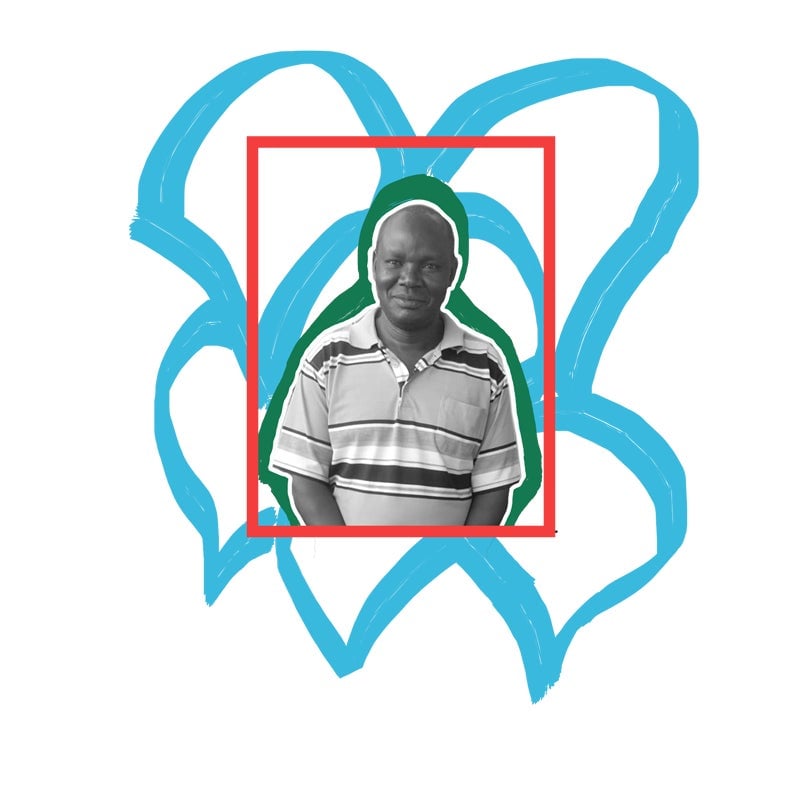
Chemist, Founder of Alisam Products
Fish have long been a daily staple for residents of Kisumu, a Kenyan port city on picturesque Lake Victoria. But few had any taste for fish skin as a fashion accessory until Newton Owino, 39, came along.
Owino, a former research scientist who studied leather chemistry at the G. B. Pant University of agriculture and technology in India, decided to tackle Kisumu’s fish waste problem by creating Alisam Products, a company which processes fish skin to create fashionable items like hats and shoes. The bet has paid off. Beyond an immediate local market, Owino’s business exports its fish leather products to Europe and North America. Alisam went from being an untested upstart in 2012 to an established business grossing $200,000 last year.
While Alisam has created nearly 100 jobs for locals, Owino has even bigger dreams. “We actually [have] the vision of establishing a leather school so that we could pass on this knowledge on technology to other people. Not just doing it for ourselves,” he says.
Nigeria’s ART X Lagos, launched by Tokini Peterside in 2016, is an international art fair to showcase contemporary art from Africa and its diaspora. Since its launch, the fair has welcomed over 15,000 guests to view the works of 120 of Africa’s most promising artists—including visitors from the Tate Modern in London and National Museum of African Art in Washington, DC.
Before starting ART X Lagos, Peterside says she was struck by how little support African artists were able to get at home versus abroad. “It seems bizarre that the cutting edge of contemporary African art is consumed outside of the continent, so in ART X Lagos, we are reversing this narrative,” she told Quartz. Peterside hopes to see more African collectors buying contemporary art and ultimately contributing “to the positioning of Lagos as an emerging cultural capital on the continent.”
Gregory Rockson is the CEO and co-founder of mPharma, a company that manages inventory for small independent pharmacies and their suppliers. Rockson wants the Accra, Ghana business to disrupt Big Pharma on the continent and other emerging markets.
“mPharma’s plan is to bring together independent pharmacies under our purchasing network and gradually build a pharmacy alliance than can bring down the cost of drugs and make them more accessible to patients”, Rockson says.
MPharma operates in 11 cities in four countries (Ghana, Nigeria, Zambia and Zimbabwe) and has received funding from influential Silicon Valley investors.
In the study of human genomes for the treatment of cancer, diabetes and other diseases, African DNA has historically been ignored.
Dr Charles Rotimi, founder of the Human Heredity and Health in Africa (H3Africa) initiative, believes this is a mistake. “Science will continue to show that we cannot really tell the human story without comprehensively studying African DNA,” Rotimi says.
The Nigerian-born epidemiologist says his lab is “interested in understanding how we can use information coded in our DNA to shed light on human migrational history within and outside of Africa.” The goal is to show “how human populations are related, without reaffirming old prejudices such as racism and discrimination based on superficial notions such as skin color.”
In March, Rotimi co-authored a groundbreaking study about the origins of sickle cell anaemia, a condition prevalent in black populations worldwide. His research could pave way for the development of treatment options for the disease.
When he’s not strategizing with Bill Gates on how to reduce extreme poverty, Moinina David Sengeh is being mentored by former US president Barack Obama. The Harvard and MIT graduate has come a long way from the city of Bo in southern Sierra Leone, to being appointed the country’s first Chief Innovation Officer.
“My role is to look at how we can [apply] science, technology, and innovation towards national development priorities and thus support the government to think about how innovation as a platform can be used to drive our development agenda,” Sengeh says.
Sengeh’s doctoral studies research focused on making prosthetics more comfortable, a subject close to his heart as both his country and adoptive city, Boston, have suffered tragedies that left victims limbless. His prosthetic prototypes have been tested by US veterans and survivors of the Boston Marathon bombings, work that won him the $15,000 Lemelson-MIT prize in 2014.
Sengeh is also the co-founder of Innovate Salone, a social action project to nurture creativity and an entrepreneurial spirit among Sierra Leonean youths.
Nora Shawki is an expert in the social and economic institutions, religion, and iconography of ancient Egypt. Her focus is historic sites in Egypt’s Delta region, where the Nile river spreads out and drains into the Mediterranean Sea. The growing spread of nearby villages means studying these sites constitutes “a race against time,” Shawki said. The 28-year-old is also using archaeological data to look into patterns of ancient socioeconomic relationships.
Shawki’s prominence in the field of archaeology has not been without its challenges, and she feels her age and gender have at times been roadblocks in obtaining excavation permits.
Fortunately, that hasn’t stopped her from pursuing her childhood dream of becoming an Egyptologist, and she is currently undertaking a doctorate in Egyptology through a joint program at Cairo University and Durham University. The types of challenges she’s faced “make you realize how strong you are when you’re pushed to your limits,” Shawki said.
Last year, Shawki was selected to be part of National Geographic’s prestigious explorers program, allowing her to direct her own excavation at the Tell Zuwelen site in the northern Egypt.
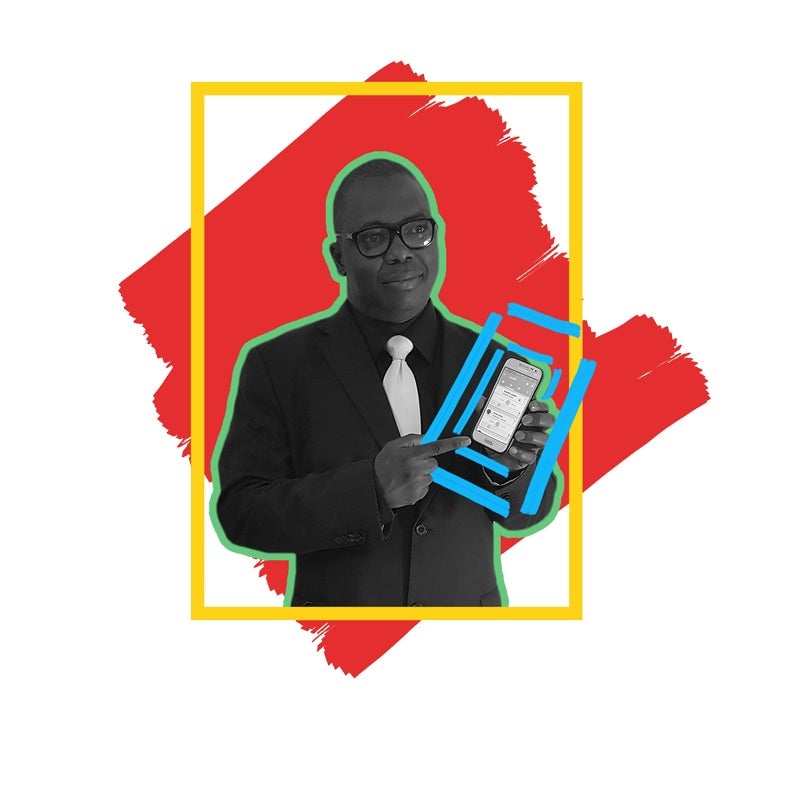
Mamadou Gouro Sidibe
Founder of Lenali app, “Mali’s Facebook”
After postgraduate studies in mathematics and IT in Russia and France, Mamadou Sidibe returned home to Mali, where he hoped to create Africa’s answer to the instant messaging app Viber. The attempt failed, but it taught Sidibe what type of communication technology the continent was most in need of.
Many Malians struggle to read on their smartphones due to low literacy rates. When a merchant asked him to read a message on Viber because he couldn’t, Sidibe realized he had to build a messaging app that could communicate in the same way most Malians did—verbally.
Sidibe created Lenali, a voice-based social network in 2017. The app sends and receives messages in Bambara, Soninke, Wolof and French and Sidibe plans to add more African languages. It allows users to create a spoken profile page, and save their contacts orally. Downloaded by more than 40,000 people, the latest version also allows for notes and GPS location tagging. The app even comes with a verbal installation guide.
For Sidibe, Africa’s oral culture shouldn’t exclude the continent from technological innovation. Instead, it could aid it.
Choreographer Sherrie Silver took to the stage at this year’s MTV Video Music Awards to accept an award on behalf of actor Donald Glover’s musical alter ego Childish Gambino. It was a crowning moment in a blossoming career.
“It means so much for me to see African dance celebrated on such a platform,” she told the crowd, and the world.
At only 23, Silver has already achieved much of what she’d set out to do. Born in Rwanda and raised in the UK, Silver’s choreography might address global themes, but it is firmly situated in Africa.
Her choreography for Childish Gambino’s culturally seismic video This is America drew on the dance moves of African youth, seen in the viral videos of dancing African children, optimistic in spite of their circumstance. This created a powerful visual tension when paired with the song’s focus on gun violence and racial justice.
Silver has already made philanthropy a key part of her success and her brand as a rising star of the dance world, holding dance workshops for African children, and even starting homes for at-risk youth in Lagos and Kigali.
Cervical cancer is the second leading cause of cancer mortality among Cameroonian women, with 30 cases and 17.5 deaths per 100,000 people every year, according to Cameroon Baptist Convention Health Service. Scientists, however, suggest current figures may be understated, given the lack of country-level data on screening and absence of a national cancer registry.
Conrad Tankou, trained at the University of Yaounde, has tackled that problem with increased access to tests and screening, and as the inventor of GIC Med, a portable digital microscope that connects to a smartphone to remotely scan for cervical and breast cancer. Data from scans are uploaded digitally to allow doctors, possibly miles away, to conduct an analysis. For hundreds of women in Cameroon who live far away from health centers with test capabilities, GIC Med could be life saving.
Tankou’s invention was rewarded with the top health award—and a $25,000 prize—at the Next Einstein Forum in Kigali, Rwanda earlier this year.
Ghada Wali is a warrior for the Arabic language. The 28-year-old graphic designer and visual artist uses typography as a means to bridge cultures, dispel stereotypes, and celebrate history. Her portfolio ranges from commercial to artistic projects which aim to raise awareness about socio-cultural, political, and gender-related issues. Unique typefaces place Arabic at the center of the work.
“Let’s Play” prompted students to build the Arabic alphabet using Lego blocks. Another project analyzed the lettering styles in vintage Egyptian movie posters in order to document the evolution of the artwork and typographic styles. One viral project, titled “Meen Homma?” (Arabic for “Who are they?”) raised awareness about issues related to gender roles, racism, and mental health through Arabic illustrations.
Wali says she wants her work “to change the sphere of language, [and] transform the educational experience in order to bring scripts and people closer together.”
Sign up to the Quartz Africa Weekly Brief here for news and analysis on African business, tech and innovation in your inbox
